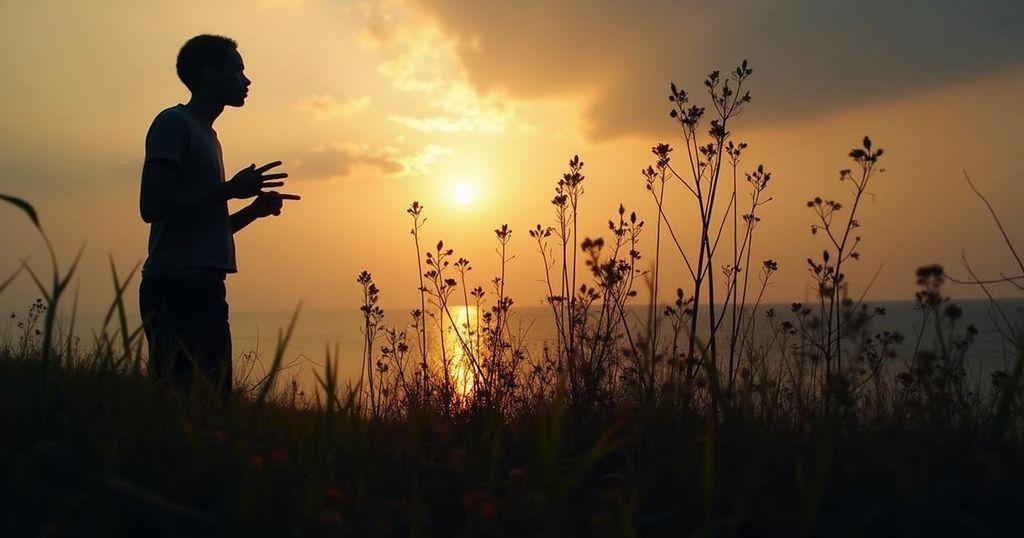Murder of Radio Maria Coordinator Highlights Danger to Journalists in DRC
Edmond Bahati Monja, coordinator of Radio Maria/Goma, was murdered in Goma, DRC, on September 27, highlighting the severe dangers faced by journalists in conflict zones. His death reflects the broader insecurity due to the activities of armed groups, particularly the M23, and the increasing violence against civilians and media personnel. Eyewitnesses report he was shot by three armed men, and this incident adds to the growing list of journalists targeted for their work in the region.
The tragic murder of Edmond Bahati Monja, the coordinator of Radio Maria/Goma, underscores the perilous environment faced by journalists in the Democratic Republic of Congo (DRC). Monja was gunned down by armed individuals on the evening of September 27, near his residence in the Ndosho district of Goma. This incident highlights the ongoing dangers posed by armed groups in the region, notably the advancing M23 movement. Goma, situated in North Kivu province, is critically affected by violent crimes, including robberies and murders as irregular militias operate in close proximity to the city. The Congolese army has sought to enhance security by aligning with various armed factions, which has inadvertently escalated the conflict and crime rates. Monja’s murder is emblematic of the targeting of journalists, who often face extreme risks while documenting the realities of conflict. Eyewitness accounts suggest that Monja was pursued by three armed men before being shot multiple times at close range. His devotion to the community and commitment to truth through journalism were widely recognized, with colleagues noting that he was a peacemaker dedicated to serving both the public and the Church. The climate of fear among journalists in Goma has worsened, with many receiving threats that hinder their ability to report freely. Radio stations like Radio Maria/Goma play a pivotal role in disseminating information about humanitarian issues but are often deemed threatening by the factions involved in the violence. Despite a state of siege declared in North Kivu and Itsuri since 2021, effective control has remained elusive, contributing to the ongoing dangers faced by civilians and journalists alike. Cardinal Fridolin Ambongo Besungu has voiced concerns about the implications of utilizing armed groups for security, warning that this strategy can lead to increased danger for the local populace, emphasizing the critical need for a robust and systematic response to the growing insecurity in the region.
The Democratic Republic of Congo, particularly the eastern region of North Kivu, has been engulfed in conflict and instability due to the actions of various armed groups, notably the M23 militias. This area has a history of violence and unrest, exacerbated by the presence of multiple factions vying for power and control. Journalists like Edmond Bahati Monja work amid this turmoil, often putting themselves at great risk while attempting to report on the plight of civilians and the activities of armed groups. The ongoing state of siege and the Congolese army’s dependence on irregular militias have only intensified the challenges faced by civilians and members of the press.
The assassination of Edmond Bahati Monja highlights the ongoing threats to journalists in conflict zones such as North Kivu, where violence has become alarmingly normalized. The inability of authorities to provide security for the populace, coupled with the escalation of crime due to armed group activities, raises significant concerns about the safety and efficacy of civil reporting and the broader implications for human rights in the region. The call for clearer, more effective measures to ensure the safety of journalists and civilians alike is critical to restoring stability and fostering a safer environment for all citizens in the Democratic Republic of Congo.
Original Source: www.fides.org




Post Comment